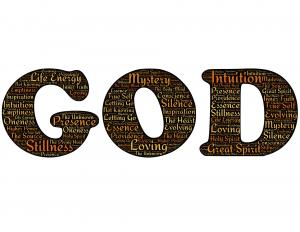
Does God exist? When people ask this question, they ask it in a general sense, that is, they are asking whether or not there exists some foundation, some creator, for all that exists. They do not need many specific characteristics or attributes in mind in order to give an answer. The question is metaphysical. It is asking whether or not there is one foundation for all that is. Sometimes, the answer which is given is a simple yes, given without much explanation: since we see things exist, there must be a source from which they come to exist, leading to the belief that there is one foundation for all things. However, when people try to do so, when they try to gives various reasons or explanations for their answer, they begin to consider what this source or foundation for all existence is like. They begin to establish attributes for that source, and in doing so, sometimes even use them to provide further explanations as to why they believe God exists. When looking to what those who believe in God say about God, it becomes clear that they will employ many of the same characteristics to describe God (although some of them will also point out that such attributions are mere conventions as they understand God is beyond all such predictions; those who do so would issue all kinds of caveats when using them to describe God).
Those of a philosophical mind will use often offer some sort of ontological or cosmological argument to establish the reality of God. Many other attributes, often derived in one fashion or another from this foundation, emerge, such as God being described as good, eternal, and omnipotent. What is important for us here is not the nature of the proofs, and whether or not any of them are successful; what is important is the agreement that people from various religious traditions have in regards the reasons they believe God exists. They will offer the same explanations, sometimes sharing them with each other (so that if a person from one religious tradition gives a good reason for belief in God, people in other religious traditions take it up and use it as well). This shows us that we can discuss the existence of God and believe in God without depending upon any particular religious tradition.
It is for this reason why it is strange that so many people, who otherwise use the same proofs for the existence of God, showing they accept the foundations presented in them, believe that people of other religious traditions do not believe in the same God. Obviously, they might not believe the same things about God, but their rationale for belief in God transcends particular religious traditions and is held in common. Similarly, these same people, who would try to argue different religious traditions lead to different Gods react differently when dealing with secular society, for then they talk about God in a more universal (and therefore, a more general) sense. This can be seen in the way many in the United States, for example, encourage the phrase “under God” in the Pledge of Allegiance. God is invoked in such a way that people of different religious traditions can say the same words and believe them together, believing that they are speaking of the same God, even if they do not hold the same beliefs about that God. Similarly, when talking about the existence of God to those who doubt the reality of God, they will argue for God’s existence and get people to accept God’s existence before arguing for their own religious beliefs about God. Rarely would do we find someone demand particular characteristics about God unique to their own religious tradition to be believed before one can say God exists. Thus, people who believe in God share God in common. Only after God is shown to exist do people begin to explain those characteristics and attributes of God which their religious tradition teaches. Sometimes, those attributes flow from what is given in the proof for the existence of God, but often, such as teachings of the Trinity in the Christian faith, they require acceptance of a particular revelation and transcend what can be asserted by reason alone. Thus, the debate which is had by people of different religious traditions tends to be over which revelation(s) and interpretation(s) one should accept about God. While revelation is important for religion, it is not necessary for someone to believe in a particular revelation to believe in God. Accepting a particular revelation only makes sense if and when God’s existence is already affirmed. This is why those arguing for the existence of God do not argue for particular characteristics about God before establishing God exists. From a Christian standpoint, questions concerning the Trinity and the incarnation emerge only after God is shown to exist.
There are differences which distinguish the various religious traditions and beliefs. They don’t all believe the same things about God. But those who believe in God, in one creator or source and foundation from which all things flow, hold God in common despite those differences. Those differences might be significant and present radically different ways for God to be understood – but behind them lies the same basic principles which allow them all to agree that God exists. Thus, for someone to say others believe wrong things about God and so do not believe in the same God offer a contradictory statement: either those others believe something wrong about God, or else they believe in another God and so might not be wrong about what they believe about the object of their belief. Once we understand belief in the reality of God does not depend upon our understanding of God, we are able to realize that we share God in common with others. That is, belief in God connects us to all who believe in God. What we dispute is not about which God we should believe in, but in what attributes and revelations about God, if any, properly represents the divine nature.
Stay in touch! Like A Little Bit of Nothing on Facebook.
If you liked what you read, please consider sharing it with your friends and family!













